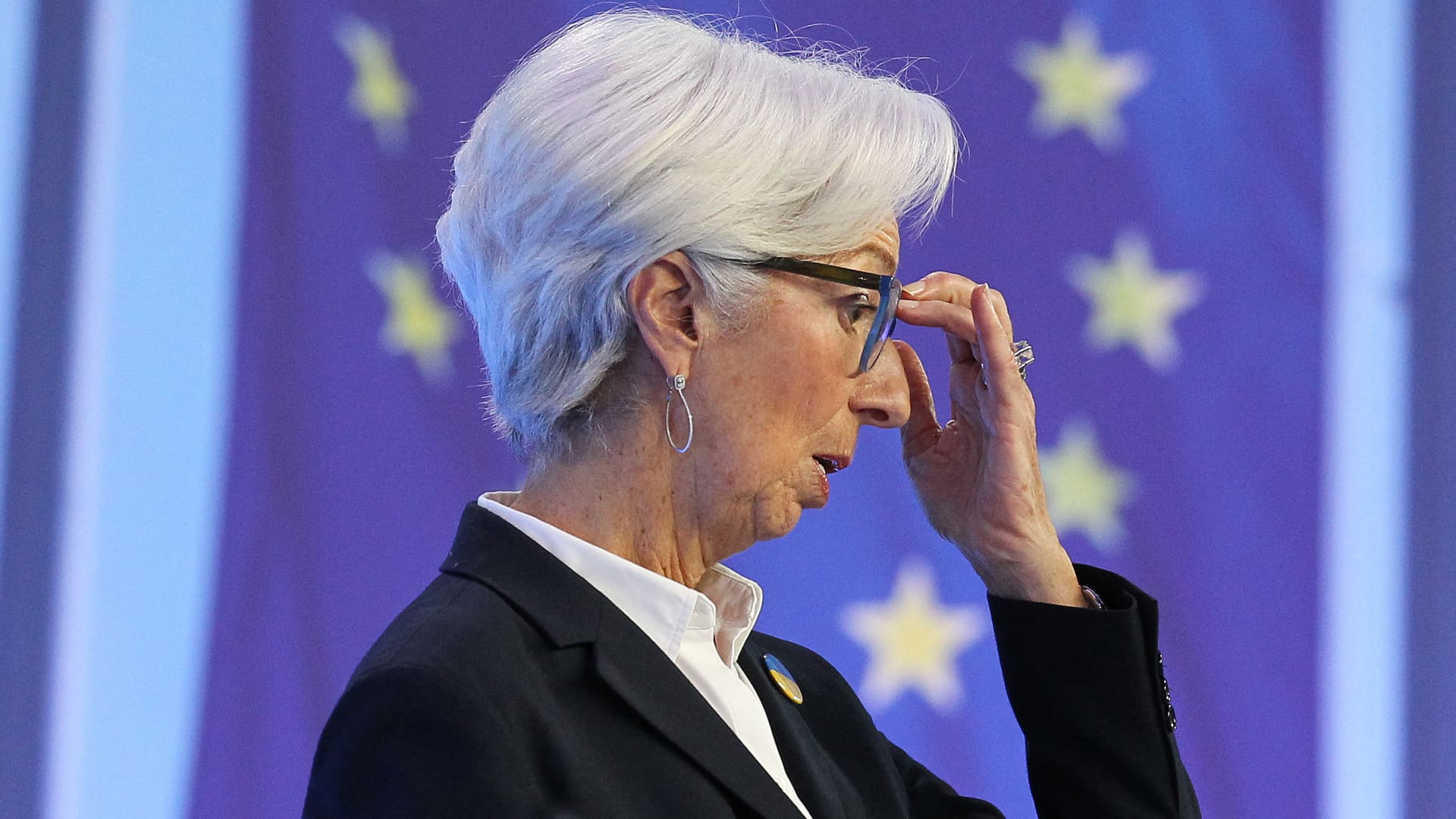
Christine Lagarde, President of the European Central Bank.
Daniel Roland | Afp | Getty Images
The cost of living hit another record high in the euro zone last month, raising further questions about how the European Central Bank can stabilize such rapidly rising consumer prices.
Headline inflation came in at 7.5% for March on an annual basis, according to preliminary data from Europe’s statistics office Eurostat released on Friday. Headline inflation had reached 5.9% in February.
The numbers come at a time when Russia’s invasion of Ukraine has brought renewed economic uncertainty, with some economists wondering whether the euro zone will enter a recession in 2022 — something that European officials have so far refused to say.
Italy’s Prime Minister Mario Draghi, for instance, said last week that there will economic damage from the invasion of Ukraine, but not a recession.
The euro zone has taken unprecedented measures to punish Russia for its decision to invade Ukraine — such as blocking the sale of luxury goods — and these sanctions are having repercussions on the euro zone economy itself.
In addition, there are other side-effects from the war, most notably higher energy prices — which are driving up inflation across the bloc.
European Central Bank President Christine Lagarde said earlier this week that “three main factors are likely to take inflation higher” going forward.
She said “energy prices are expected to stay higher for longer,” “pressure on food inflation is likely to increase,” and “global manufacturing bottlenecks are likely to persist in certain sectors.”
This economic backdrop is leading consumers to be more pessimistic about their prospects going forward, too. “Households are becoming more pessimistic and could cut back on spending,” Lagarde said in a speech in Cyprus on Wednesday.
Lower spending could bring even further economic headaches, as businesses would be selling less, have less room to pay employees and would be less likely to invest.
Higher interest rates
“With euro-zone inflation rising even further above the ECB’s forecast, and likely to remain very high for the rest of the year, we think it won’t be long before the Bank starts raising interest rates,” Jack Allen-Reynolds, senior Europe economist at Capital Economics, said in a note to clients Friday morning.
“We have penciled in three 25 basis points rate hikes for this year,” he added.
Analysts at Berenberg expect a first rate hike in the fourth quarter of 2022, followed by three others in 2023.
“The ECB thus has more time than the U.S. Fed to scale back its monetary stimulus. But as expensive green transition policies and somewhat expansionary fiscal policy will likely see inflation trend upwards again,” Salomon Fiedler, economist at Berenberg said, adding that “the ECB will need to react eventually, too.”






